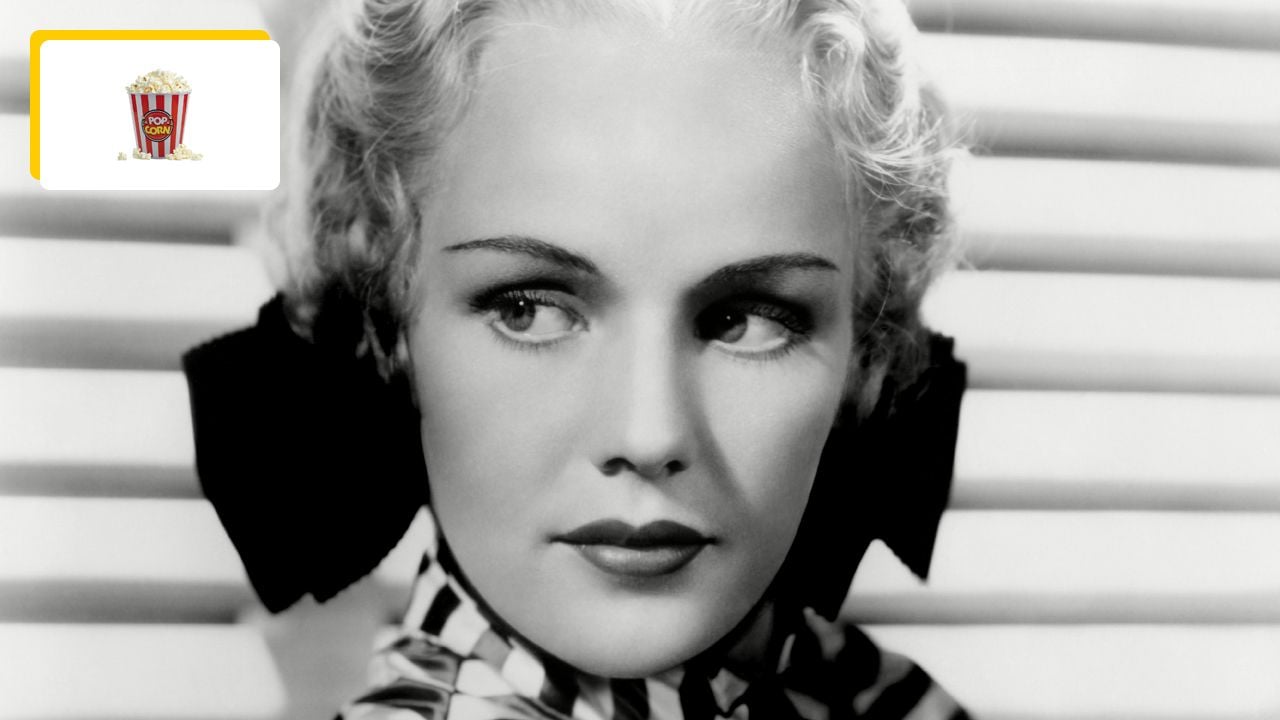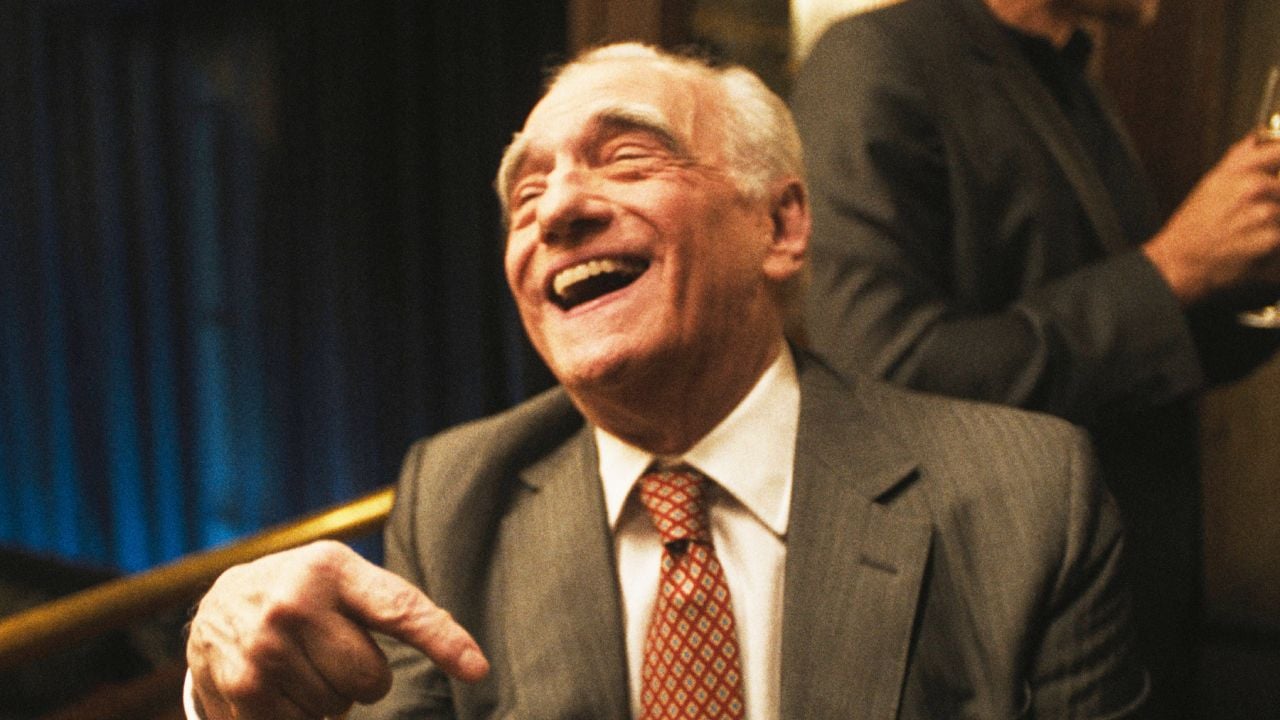A machine that is always quick to make and sell dreams, the Hollywood factory has also shattered many fortunes with the overly rebellious spirit of men and especially women throughout its history. Or, at any rate, deemed too unfit for the tyrannical mold of glamor and glitz.
When some not so embarrassing news emerges from the back kitchen of New Babylon… The depression and tragic fate of actor Francis Farmer, an intelligent and sensitive actor, but also a determined individualist with a mind of his own. Destructive temperament is undoubtedly one of his most vivid and sad symbols.
Francis Farmer, “Intolerable Confusion”
Born in September 1913 in Seattle, Washington, the daughter of a prominent lawyer, Frances (Elena) Farmer was early noted for her vivacity, curiosity, intelligence, and a marked taste for writing. In 1931, while attending West Seattle High School, he won a creative writing contest with his essay. God is dyingand wins $100. Francis’ first coup and first scandal. Her essay topic and her prize were published in the local newspaper under the headline, “Seattle Girl Rejects God and Wins First Prize.”
Willingly independent, even though her father could support a family with three dependent children, Francis Farmer worked several odd jobs, such as working as a movie theater attendant or waitress, to pay for his tuition at the University of Washington.
It was there that he studied journalism, then English and dramaturgy. An actress in several student plays, she won critical acclaim, much to her mother’s mutual satisfaction and disappointment; The one who dreamed of an acting career in Hollywood…
Francis Farmer in “The Vandal”, 1936.
In 1935, he won a new contest organized by a politically leftist newspaper. the sound of action. First prize: trip to the Soviet Union. Despite her mother’s protests, Francis takes a boat to the USSR. Later in her life, these two events would play an important role in the birth of violent rumors describing the young woman as a communist atheist…
After returning from the trip, Francis stops in New York before heading straight back to Seattle, hoping to become a stage actor there. It was there that an agent noticed him and convinced him to sign a seven-year contract with Paramount. Quickly earning the nickname “The New Garbo” thanks to her beauty, Francis began her career starring in two B-movies, one with Bing Crosby. Rhythm on the range.
In 1936, his first major role, Le Vandale, was praised by critics. In 1937, she played the title role in the stage play Golden Boy written by Clifford Odets and the female lead in Rowland V. Lee’s The Gold and the Wife. Loaned to Samuel Goldwyn by Paramount, she also appeared in several successful films, including Knight of Vengeance starring Tyrone Power, or Damn sailboat With Ray Milland.
The beginning of trouble
But Francis is frustrated with the way Paramount is handling her career, emphasizing her beauty over her actual acting talent. At a time when the majors control every aspect of their talent pools’ careers, Francis Farmer’s independent and nonconformist character poses a problem. Hating the star system, avoiding social gatherings, he also regularly declares that he likes nothing but money in Hollywood.
Criticism has already started since the beginning of his career. Shortly after signing the contract with Paramount, Francis was called by the studio staff to shoot. He is criticized for not wearing a hat in the street, and his shoes and coat are considered unfashionable. “Movie lovers expect more from their favorite stars” We whisper to him.
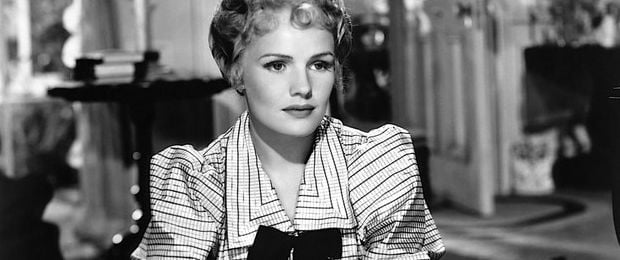
The actor’s poignant response is true to his (too much) sincerity: “I’ve never met anyone from the management office, so I don’t know how to get there. Would you be so kind as to come out and bring them a message from me? Tell them that ‘They paid as much attention to the roles they offer their actors as to their clothes, we probably make more money than me and them?’ Suffice it to say that this type of announcement is almost like a declaration of war, especially since he had the misfortune of alienating mogul Adolf Zukor and other tycoons.
“I drink anything I can find, even Benzedrine”
His serious problems began on October 19, 1942, after a banal incident: driving drunk, without a license and with full headlights in a light restriction zone. At the police station, he made the police jump by answering a “cock sucker” question about his job. The judge sentenced him to 180 days in jail and a $500 fine.
In January 1943, after failing to pay the full fine and appear before his probation officer, a studio hairdresser accused him of cutting out his jaw and even strangling a prop in the middle of traffic on the Sunset Strip in Los Angeles. , finally arrested again. This time in the hotel – Knickerbocker -. Police knocked on her bedroom door but returned without response with a spare key. Francis, then naked and drunk in his bathroom, is hysterical.
His new appearance before the judge is a new ordeal. Looking at the crowd of photographers gathered around him, he gives them a “Bastard! Bastard! Bastard!” When Judge Hickson—much less benevolent than before—questions him about his alcohol addiction, he loses his temper and raises his voice: “Look, I put alcohol in milk, I put alcohol in coffee and orange juice. What do you want me to starve to death, I drink everything, even benzedrine.
An upset judge sentences him to 180 days in prison. In anger, he throws ink on the head of the judge hearing the case. Francis tries to run to call a lawyer, punches a guard and even knocks a policeman to the ground.
“The worst torture the stars have ever experienced”
At the same time, his feature career, once at its zenith under the auspices of Paramount, had declined to low production under the supervision of Monogram Pictures. The mother then explained to Seattle reporters that her daughter’s difficulties were just a publicity stunt meant to give her a specific dungeon experience.
“They should consider a movie for him with scenes in prison so he can act inspired by what he’s been through.” He dares his mother to tell the press. At the same time, he added with all seriousness that his daughter’s problems are due to international communism…
Health services then classify Francis as mentally ill and recommend that he be placed in the La Crescenta Sanatorium. There he received 90 insulin shock treatments (Sackel’s cure) and returned to the Western Washington State Hospital in Steilacoom, from which he escaped.
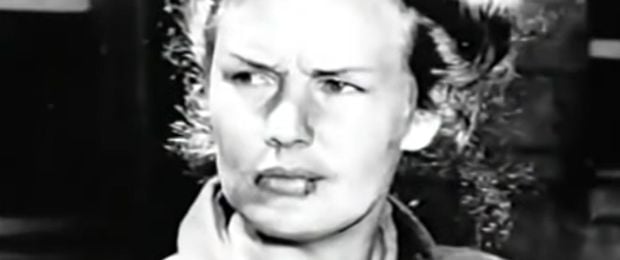
Francis Farmer, his face very prominent, while at the medical center…
“Francis refused to work in prison. He found himself stuck in a private sanatorium to undergo three months of daily crushing injections of a laxative; a practice that is now completely discredited. After the horrors of the sanatorium, he “waited for ten years in the absolute hell of a mental asylum. . writes Kenneth Anger in his iconic work Hollywood Babylone (and first published in France by Tristram in 2013).
His internment there would be the worst torture a star had ever been subjected to—one of the most hideously tragic of Hollywood tragedies. Leather straps and demonic guards elicited little sympathy in the enchanted city that exploited him. We were glad to get rid of him. “
The mother, upon learning of her daughter’s treatment, requested that her daughter’s custody be transferred from the state to her. But in 1944, Francis attacked his mother, who interned him again. After a three-month stay and treatment including electric shocks, Francis was declared cured. Still living with her parents, she takes advantage of visiting her aunt to escape. Interned again in May 1945, again on his mother’s orders, this time Frances remained locked up for nearly five years.
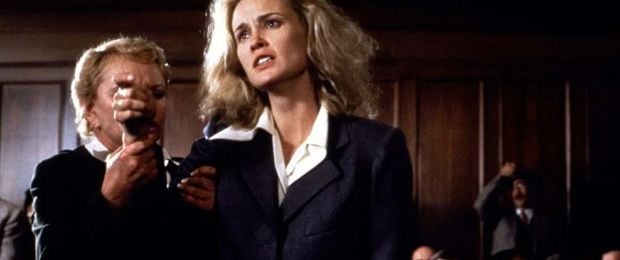
Jessica Lange in the movie “Frances” in 1983.
Then a new real hell begins for him. In addition to the living conditions, humiliation, and constant electric shock treatment, she would become the victim of multiple rapes by nursing staff, as she revealed in an autobiographical book published posthumously in 1973, with a title that is better suited to outrage: Will it really be morning?
However, other statements are open to question. One of his biographers, William Arnold, said that Francis underwent a transorbital lobotomy, an event found in the (excellent) film that depicts his sad life, Francis, but admitted at trial that he invented the episode.
However, Frances’ own sister, Edith Elliott, reveals her work Look back in loveThat their father visited Western State Hospital in 1947 and arrived in time to stop the lobotomy: “If they tried to operate one of his pigs, they would face dangerous prosecution “ their father would say.
Became a dry cleaner, secretary, accountant…
On March 25, 1950, Francis Farmer regained his freedom. Afraid that her mother will send her back to a mental institution and relive the hell of hell, Frances is determined to break free from her mother’s custody. In 1951, a judge granted his request and restored all his rights. The former actress then began working as a dry cleaner at the Olympic Hotel, where in 1936 she was celebrated at the premiere of her film The Vandal…briefly remarried, then worked as a secretary and bookkeeper in a photography studio for three years.
In 1957, she met her third husband, Leland Mikesell, a television executive who convinced her to take up filming again. Arranged in the press to publish an article about his wife, then a receptionist at the hotel, he allowed her to return to his first love: the boards, in Pennsylvania. In 1958, he appeared in a television show This is your life and the series the tongues of angelsThen he made his last film The Party Crashers.
Here is an excerpt from his visit Show it’s your life. Exciting video when Francis is summoned by an interlocutor to return to his painful past…
This modest return to grace culminated between 1958 and 1964, when she finally presented a television program that became popular. Francis Farmer presentsin Indianapolis. In 1968, he began work on his autobiography. Will it really be morning?which he cannot fulfill. On August 1, 1970, Francis Farmer died of esophageal cancer at the age of 56. A sadly untimely end for this rebellious Hollywood icon, who paid dearly and cruelly for it.
In 1982, the life of Francis Farmer was brought to the screen by Graeme Clifford, starring Jessica Lange, who here finds perhaps the best role of her long career. The film is available on DVD/Blu-ray as well as VOD.
Source: Allocine
Rose James is a Gossipify movie and series reviewer known for her in-depth analysis and unique perspective on the latest releases. With a background in film studies, she provides engaging and informative reviews, and keeps readers up to date with industry trends and emerging talents.

